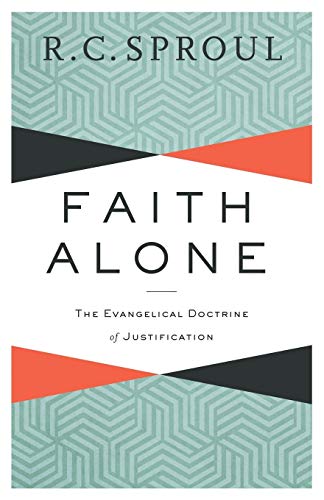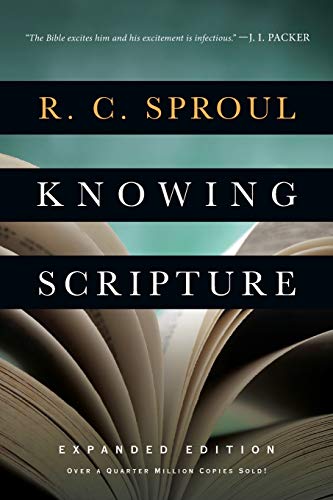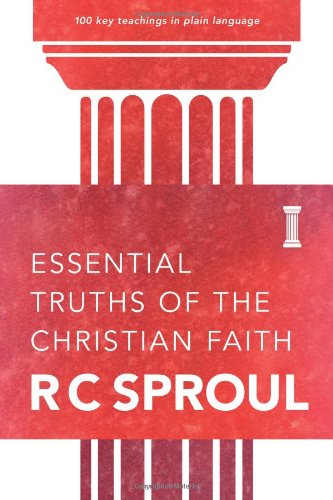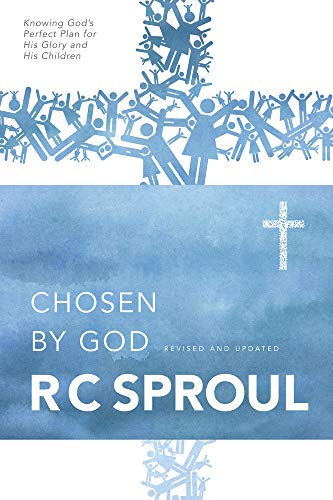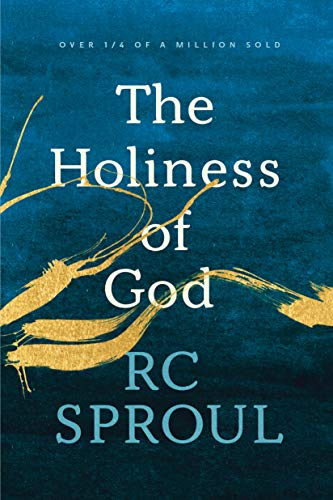
Quotes by R.C. Sproul
Touching His human nature, Jesus is no longer present with us. Touching his Divine nature, He is never absent from us.
The Purpose of God, An Exposition of Ephesians, Christian Focus Publications, 1994, p. 22.
We tend to be far more ungenerous in forgiving others than God is in forgiving us. If God were to be as reluctant to forgive as we are in forgiving those who sin against us, we would be in serious trouble. As Christians we are forgiven people. We are likewise called to be forgiving people. Jesus clearly sets forth an ethic of charity in His teaching and in His behavior with those who wrong us. An unwillingness to forgive clearly has no place in the kingdom, and may in fact signal that such a one has not experienced the initial forgiveness of God in his or her life.
The Purpose of God, An Exposition of Ephesians, Christian Focus Publications, 1994, p. 120.
People only have true understanding (wisdom) when they look at everything from God’s perspective. Authentic wisdom begins when we understand that God is to be the object of our devotion, our adoration, and our reverence (Psalm 111:6).
The Purpose of God, An Exposition of Ephesians, Christian Focus Publications, 1994, p. 38.
But the blessing Christ promised, the blessing of great reward, is a reward of grace. The blessing is promised even though it is not earned. Augustine said it this way: Our rewards in heaven are a result of God’s crowning His own gifts.
Suffering and Merit? Tabletalk magazine, Ligonier Ministries, v. 13, n. 1, February 1989, p. 5. Used by Permission.
In the New Testament, love is more of a verb than a noun. It has more to do with acting than with feeling. The call to love is not so much a call to a certain state of feeling as it is to a quality of action.
At the moment the Roman Catholic Church condemned the biblical doctrine of justification by faith alone, she denied the gospel and ceased to be a legitimate church, regardless of all the rest of her affirmations of Christian orthodoxy. To embrace her as an authentic church while she continues to repudiate the biblical doctrine of salvation is a fatal attribution.
God’s plan never changes because He never changes and because perfection admits to no degrees and cannot be improved upon.
When we speak of spiritual union or mystical union with Christ, we must be careful not to fall into heretical forms of mysticism. In Eastern forms of mysticism the religious goal is a kind of unity (unio) with the deity by which the individual is so absorbed by the ‘ultimate one’ that personal identity is obliterated. In Christian mystical union, the self is not lost or erased by being merged with some oversoul or universal essence.
The Purpose of God, An Exposition of Ephesians, Christian Focus Publications, 1994, p. 90.
To demand from others what the Spirit Himself patiently endures is to exalt ourselves above God.
The Spirit of Revival by Archie Parrish, Introduction, Copyright 2000, Crossway Books, a division of Good News Publishers, Wheaton Illinois 60187, www.crosswaybooks.org. p. 39.
When the Bible speaks of patience…it speaks of it as a virtue that goes far beyond the mere ability to await some future gain. It involves more than the rest or peace of the soul that trusts in God’s perfect timing. The patience that is in view here focuses more on interpersonal relationships with other people. It is the patience of longsuffering and of forbearing in the midst of personal injury. This is the most difficult patience of all.
Longsuffering, forbearing patience is to be the Christian’s reflection of the character of God. It is part of God’s character to be slow to anger and quick to be merciful. Part of the incomprehensibility of God in terms of my own relationship with Him is this: I cannot fathom how a holy God has been able to put up with me marring His creation to the degree I have for three score and five years. For me to live another day requires a continuation of God’s gracious patience with my sin… It becomes even more difficult to fathom when we see a sinless Being being more patient with sinful beings that sinful beings are with each other.
So often when we struggle with the doctrine of predestination and election it is because our eyes are always fixed on the difficulty of resolving predestination with human freedom. The Bible, however, links them with salvation, which every Christian should find enormously comforting. Salvation is not an afterthought of God. The redemption of His people, the salvation of His church, my eternal salvation, these actions are not a postscript to the Divine activity. Instead, from the very foundation of the world, God had a sovereign plan to save a significant portion of the human race, and He moves heaven and earth to bring it to pass.
The Purpose of God, An Exposition of Ephesians, Christian Focus Publications, 1994, p. 23.
The reason for election is not my foreseen righteousness; or my foreseen obedience; or my foreseen response to the gospel…the only reason to be found in Scripture that explains why God elects people for salvation… that God has done this in accordance with His pleasure and will (Ephesians 1:5).
The Purpose of God, An Exposition of Ephesians, Christian Focus Publications, 1994, p. 24.
When you feel depressed, it helps to actively change your environment. Go and do something different. Martin Luther conquered his depression by going outside to work in his garden. Surprisingly enough, one of the best ways to handle depression is to go to work immediately on the task you least enjoy. (The chances are your depression is caused by guilt feelings arising out of neglect of those tasks.)
Like Muslims we assume that God will judge us “on balance.” If our good deeds outweigh our bad deeds, we will arrive safely in heaven. But, alas, if our evil deeds outweigh our good ones, we will suffer the wrath of God in hell. We may be “marred” by sin but in no wise devastated by it. We still have the ability to balance our sins with our own righteousness. This is the most monstrous lie of all.
The Holy Spirit is the Author of the Book that informs us of the identity of the real, historical Jesus. Scripture works hard to set forth the real Christ. The creeds are merely attempts to preserve this biblical portrait and to protect it from distortions. When a person says, “All I need to know is Jesus – doctrine isn’t important,” we should immediately ask in reply, “Who is Jesus?” The moment a person begins to answer that question; the person is inescapably involved with doctrine.
The Spirit of Revival by Archie Parrish, Introduction, Copyright 2000, Crossway Books, a division of Good News Publishers, Wheaton Illinois 60187, www.crosswaybooks.org. p. 31.
To the Christian, doctrine is unavoidable. Ours is never a choice between doctrine and no doctrine, but between sound doctrine and false doctrine. This is nowhere more urgent than when we are talking about the Christ, who is the object of our faith.
The Spirit of Revival by Archie Parrish, Introduction, Copyright 2000, Crossway Books, a division of Good News Publishers, Wheaton Illinois 60187, www.crosswaybooks.org. p. 31.
For every truth there is a corresponding falsehood. A Christian is known not only by what he believes or affirms, but also by what he rejects and denies.
The Spirit of Revival by Archie Parrish, Introduction, Copyright 2000, Crossway Books, a division of Good News Publishers, Wheaton Illinois 60187, www.crosswaybooks.org. p. 34.
Just as there are no ultimate tragedies for the believer, so for the impenitent unbeliever there are no ultimate blessings. Every good gift God bestows upon the wicked, for which the wicked do not glorify God or acknowledge His goodness with gratitude and worship, becomes a tragedy. The more gifts God gives that are despised by the recipient, the more guilt is incurred, so that, to the wicked, on Judgment Day the gifts of God’s kindness become tragedies.
Christianity is a faith that is based upon and rooted in miracles. Take away miracles, and you take away Christianity.
You can’t open your eyes in this universe without seeing a theater of divine revelation.
Prayer does change things, all kinds of things. But the most important thing it changes is us.
The wife has authority over the husband’s body and the husband has authority over the wife’s body in the sexual context. Imagine that! I wonder how many marital problems would be solved if couples followed this one principle.
If you’re not accountable in life that means ultimately that your life doesn’t count.
Nothing gives believers more joy than to see God glorified.
The grand paradox or supreme irony of the Christian faith is that we are saved both by God and from God.
As the fear of God is the beginning of wisdom, so the denial of God is the height of foolishness.
God is not required to seek the sinner’s permission for doing with the sinner what He pleases.
It is clear that however we define a miracle we must place the alleged miracles of today in a different class, or category, from those recorded in the Scriptures. No one is bringing something out of nothing these days—unless it is the currency produced by the federal government!
Only once in sacred Scripture is an attribute of God elevated to the third degree. Only once is a characteristic of God mentioned three times in succession. The Bible says that God is holy, holy, holy. Not that He is merely holy, or even holy, holy. He is holy, holy, holy. The Bible never says that God is love, love, love; or mercy, mercy, mercy; or wrath, wrath, wrath; or justice, justice, justice. It does say that he is holy, holy, holy, that the whole earth is full of His glory.
The church is the most important organization in the world. It is the target of every demonic, hostile attack in the universe. Jesus personally guaranteed that the gates of hell will never prevail against the church. He made no guarantee that the gates of hell would not be unleashed against it, however.
The more I learn about God, the more aware I become of what I don’t know about Him.
Man’s will is free to follow his inclinations, but fallen man’s inclinations are always and invariably away from God.
Anger is [not] in itself sinful, but…it may be the occasion for sin. The issue of self-control is the question of how we deal with anger. Violence, tantrums, bitterness, resentment, hostility, and even withdrawn silence are all sinful responses to anger.
The idea of sola Scriptura is that there is only one written source of divine revelation, which can never be placed on a parallel status with confessional statements, creeds, or the traditions of the church. Scripture alone has the authority to bind the conscience precisely because only Scripture is the written revelation of almighty God.
The Bible alone is the only authority that can bind the conscience of a person absolutely because it is the only authority that carries with it the intrinsic authority of God Himself.
R.C. Sproul The Divine Foundation of Authority, Tabletalk, March, 2009, p. 7. Used by Permission.
I argue that the primary reason we misinterpret the Bible is not because the Holy Spirit has failed to do His work, but because we have failed to do ours.
Taken from: Essential Truths of the Christian Faith by R. C. Sproul, Copyright © 1992 (Sproul), p. xix, Used by permission of Tyndale House Publishers, Inc. All rights reserved.
Throughout the ages the church has understood that the most significant manifestation of true faith is love. Faith without love is not faith, only speculation or knowledge or mere intellectual assent. The fruit of authentic faith is always love.
The Purpose of God, An Exposition of Ephesians, Christian Focus Publications, 1994, p. 37.
There is, however, a crucial difference between a profession of faith and the possession of faith… It is not the mere claim to faith that makes us Christians. We must have what we claim to have to be truly in Christ. esus somberly warned about those who say, “Lord, Lord,” who are not His (Matthew 7:21). He made it clear that people can honor Him with their lips while their hearts are far from Him.
The Purpose of God, An Exposition of Ephesians, Christian Focus Publications, 1994, p. 88-89.
There are those, particularly in our day, who are so disenchanted with the visible church that they steadfastly refuse to join any local church. Such a posture is misguided and involves overt disobedience to the commands of Christ. Though it is possible for a believer to be confused about this for a season, someone who persists in such a posture is, in all probability, not a believer. It is the duty of every Christian to join a visible church.
The Purpose of God, An Exposition of Ephesians, Christian Focus Publications, 1994, p. 89
[Abortion is] the most serious ethical issue that the United States has ever faced.
From sacred Scripture [2 Sam. 12:1-15; 1 Ki. 21; Mt. 14], we see representatives of the church not trying to become the state but offering prophetic criticism to the state – despite the potential consequences. The church is not the state, but it is the conscience of the state, and it is a conscience that cannot afford to become seared and silent.
The evangelical church’s chief strategies to end abortion have been to put pressure on abortion clinics and on elected officials. There is nothing wrong with these strategies; however, one strategy that has not been used or adopted widely is that of protesting those churches that support the ghastly murder of unborn babies. It is time for Christians to give prophetic criticism to the church, specifically to those churches that support abortion on demand or remain silent on this major issue…[and] when the church is silent in the midst of a holocaust, she ceases to be a real church.
In the history of the world, no one has been saved by the power of answering and altar call, or by the power of raising a hand, or by the power of saying “the sinner’s prayer,” or by the power of “inviting Jesus into your heart.” That is not what saves you. It is the power of the gospel that God uses to redeem your soul. It is by faith that the power is wrought in you.
Onward Christian Soldiers, ed. Don Kistler, Soli Deo Gloria, 1999, p. 223. Used by Permission.
Nobody is born into this world a child of the family of God. We are born as children of wrath. The only way we enter into the family of God is by adoption, and that adoption occurs when we are united to God’s only begotten Son by faith. When by faith we are united with Christ, we are then adopted into that family of whom Christ is the firstborn.
The New Birth, Tabletalk, March 2007, p. 7. Used by Permission of Ligonier Ministries.
The Bible does not provide a uniform formula for the proper physical or emotional reactions to the presence of the Holy Spirit. The presence of tears, convulsions, jerking, laughter, etc. are no measure of the Spirit’s presence. When we canvass the Scripture to see how the saints reacted to the outpouring of the Spirit, we see no prescribed form of bodily behavior. Habakkuk had a quivering lip and a trembling belly. Others fell to the ground as though dead. Some wept, some sang, some were reduced to stunned silence. In light of the diversity of human personalities and indeed the very nature of man, the presence or absence of these responses is no true test of the authenticity of the Spirit’s work. However, I hasten to add that though a wide variety of emotional responses may be detected in Scripture by those who encounter the living God, there is at least one emotion that may safely be excluded from the list – namely, boredom. It is hardly possible for a creature made in the image of God to be awakened or revived by the Spirit of God and be bored in the process.
The Spirit of Revival by Archie Parrish, Introduction, Copyright 2000, Crossway Books, a division of Good News Publishers, Wheaton Illinois 60187, www.crosswaybooks.org. p. 25-26.
Nobody is born into this world a child of the family of God. We are born as children of wrath. The only way we enter into the family of God is by adoption, and that adoption occurs when we are united to God’s only begotten Son by faith. When by faith we are united with Christ, we are then adopted into that family of whom Christ is the firstborn.
The New Birth, Tabletalk, March 2007, p. 7. Used by Permission of Ligonier Ministries.
Social ethics must never be substituted for personal ethics. Crusading can easily become a dodge for facing up to one’s lack of personal morality. By the same token, even if I am a model of personal righteousness, that does not excuse my participation in social evil. The man who is faithful to his wife while he exercises bigotry toward his neighbor is no better than the adulterer who crusades for social justice. What God requires is justice both personal and social.
What do you do with the person who says, “I’ve asked God to forgive me about this, but I still feel guilty”? I hear that statement over and over again. I usually say to these people, “If you still feel guilty, then pray to God again. But this time don’t ask Him to forgive you for the sin that is haunting you. Rather, ask Him to forgive you for insulting His integrity by refusing to accept His forgiveness. Who are you to refuse to forgive yourself when God has forgiven you? When God promises to forgive His people when they repent, He is not playing games. If He says He will forgive you, then He will forgive you. And if God forgives you, you are forgiven.”
I once read the following definition of a fanatic: “A fanatic is a person who, having lost sight of his goal, redoubles his effort to get there.” The fanatic runs around frantically getting nowhere. He is a basketball player without a basket, a tennis player without a net, a golfer without a green. For a Christian to make progress in…learning to please God, he must have a clear idea of what his goal is… Jesus stated it this way: “Seek first the kingdom of God and His righteousness, and all these things shall be added to you.”
All of our warfare and all of our activity must take place in the context of constant, unceasing prayer. Just as a soldier on the battle line has to keep in constant communication with his general headquarters and his commanding officer, so the Christian who is on the battle line must be in constant communication with his Lord. He might be fully equipped with all the armor, but if he is cut off from personal communication with his own commander, then he will be isolated and vulnerable.
The Purpose of God, An Exposition of Ephesians, Christian Focus Publications, 1994, p. 152.
The very word authority has within it the word author. An author is someone who creates and possesses a particular work. Insofar as God is the foundation of all authority, He exercises that foundation because He is the author and the owner of His creation. He is the foundation upon which all other authority stands or falls.
The authority by which God governs all things is His autonomous authority. To say that God’s authority is autonomous is to say that God is a law unto Himself. He is not bound by some abstract system of law that exists outside of Himself or independent from Him (ex lex). Nor is God under some external law (sub lego); rather, He is a law unto Himself. This does not mean that He acts or behaves in an arbitrary manner. Rather, God’s activity is directed by God’s own character. And His character is completely righteous. All that He does flows out of His own internal righteousness. His external authority comes from His internal righteousness. In this sense God’s authority is intrinsic. It is found within Himself. It is not borrowed, delegated, or assigned from any other source.
There is a vast difference, however, between childlike faith and childish faith, though the two are often confused. [Childlike faith calls the believer] to remain forever in a state of awe and trust of their heavenly Father, while a childish faith balks at learning the things of God in depth. It refuses the meat of the gospel while clinging to a diet of milk…The call of the New Testament is to maturity.
Jesus’ life was a storm of controversy. The apostles, like the prophets before them, could hardly go a day without controversy. Paul said that he debated daily in the marketplace. To avoid controversy is to avoid Christ. We can have peace, but it is a servile and carnal peace where truth is slain n the streets.
Taken from: Essential Truths of the Christian Faith by R. C. Sproul, Copyright © 1992 (Sproul), p. xv, Used by permission of Tyndale House Publishers, Inc. All rights reserved.
Loving a holy God is beyond our moral power. The only kind of God we can love by our sinful nature is an unholy god, an idol made by our own hands. Unless we are born of the Spirit of God, unless God sheds His holy love in our hearts, unless He stoops in His grace to change our hearts, we will not love Him… To love a holy God requires grace, grace strong enough to pierce our hardened hearts and awaken our moribund souls.
Taken from: The Holiness of God, by R.C. Sproul. Copyright © 1990. Used by permission of Tyndale House Publishers, Inc. All rights reserved.
The church has been established by Christ to be an army…(but) armies, in order to be effective, must be very sensitive in caring for their wounded… There is always a major work to be done within the church in terms of ministering to the needs of the people.
The Purpose of God, An Exposition of Ephesians, Christian Focus Publications, 1994, p. 103.
The Antinomian heresy is the view that the law of God revealed in the Old Testament has nothing to do with the New Testament church; that the New Testament church is a church without law, a church that lives and breathes exclusively on the basis of grace… But the New Testament is far from abolishing God’s moral law. Jesus calls His disciples to obedience. He says, “If you love me, you will obey what I command” (John 14:15).
The Purpose of God, An Exposition of Ephesians, Christian Focus Publications, 1994, p. 64-65.
- « Previous
- 1
- 2

